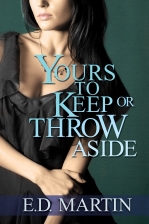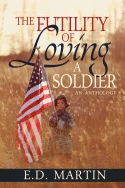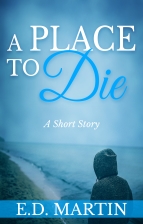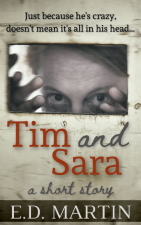Tonight was parent-teacher conferences night. The sad thing about these at the high school level is that the parents who need to attend the most, don’t. I had my typical turnout of one parent, and then I put on my surrogate-parent hat and went around to a bunch of my students’ teachers to see how they’re doing (I’ll be giving up my planning periods to tutor someone in geography, two other kids in Earth Materials, and a third in Guided Writing). I still had an hour left, so I turned to my homework.
My online writing group is making a conscious effort to expand our understanding of the craft. This week’s assignment: Read (and discuss!) the linked essay by George Orwell and write a 500-word piece of flash which responds to it, or which features some of Orwell’s four reasons for writing in mixed amounts.
I’ve already written about why I write, but this time around I’ll focus on Orwell’s essay.
Why I Write
In his essay, Orwell gives four reasons for writing: sheer egoism, aesthetic enthusiasm, historical impulse, and political purpose. I can maybe buy that.
First is egoism. There’s a definite thrill when I receive an acceptance for a submission and then again when I see my name in print, knowing that the message I’ve thrown into my work may reach its intended audience. Knowing that my work will have an impact on someone, somewhere. However, I hide behind a pen name and most people don’t know that I write, or if they do know they don’t bother to read any of it, so obviously egoism isn’t a main reason for why I do this.
Next on the list is aesthetic enthusiasm. My language tends towards simplistic words and phrases, usually devoid of the dreaded purple prose, of elaborate descriptions and miles of narrative just because I can. But aesthetics, Orwell tells us, isn’t just minute details; equally important is the general flow, the overall impact my words create with pacing, dialogue, character development, and plot. And it’s those that fuel my “desire to share an experience which one feels is valuable and ought not to be missed.”
And that leads to his next reason, historical impulse. In The Things They Carried, Tim O’Brien wrote, “A thing may happen and be a total lie; another thing may not happen and be truer than the truth.”I couldn’t agree more. For myself and I think many writers as well, how things are and how we see them overlap equally with the truth. We interpret what happened; whether it happened or not is irrelevant.
This shouldn’t be confused with political purpose. If I can understand your reality and articulate it when you can’t, does it matter whether it happened as I wrote it or as you experienced it, if both versions arrive at the same truth?
That’s not to say I don’t put a spin on what I write – Orwell’s political purpose. I color my stories with how I see the world or want to see it, and, more importantly, how I want the reader to see it.
All these reasons for writing blur together. I write because I enjoy when other people (egotism) react to my words (aesthetics) and see the world (historical impulse) as I see it (political).
But more importantly, I write because I want to. Because I need to. As Orwell says in his essay, “One would never undertake such a thing if one were not driven on by some demon whom one can neither resist nor understand.”
It’s not egotism; I’d write even without an audience, and I have tons of stories I’ve written that I don’t plan to share with anyone. It’s more than how well a series of paragraphs come together, or an agenda I push on people.
I write, quite simply, because I have ideas in my head that I want to express.
Everything else is just excuses.





